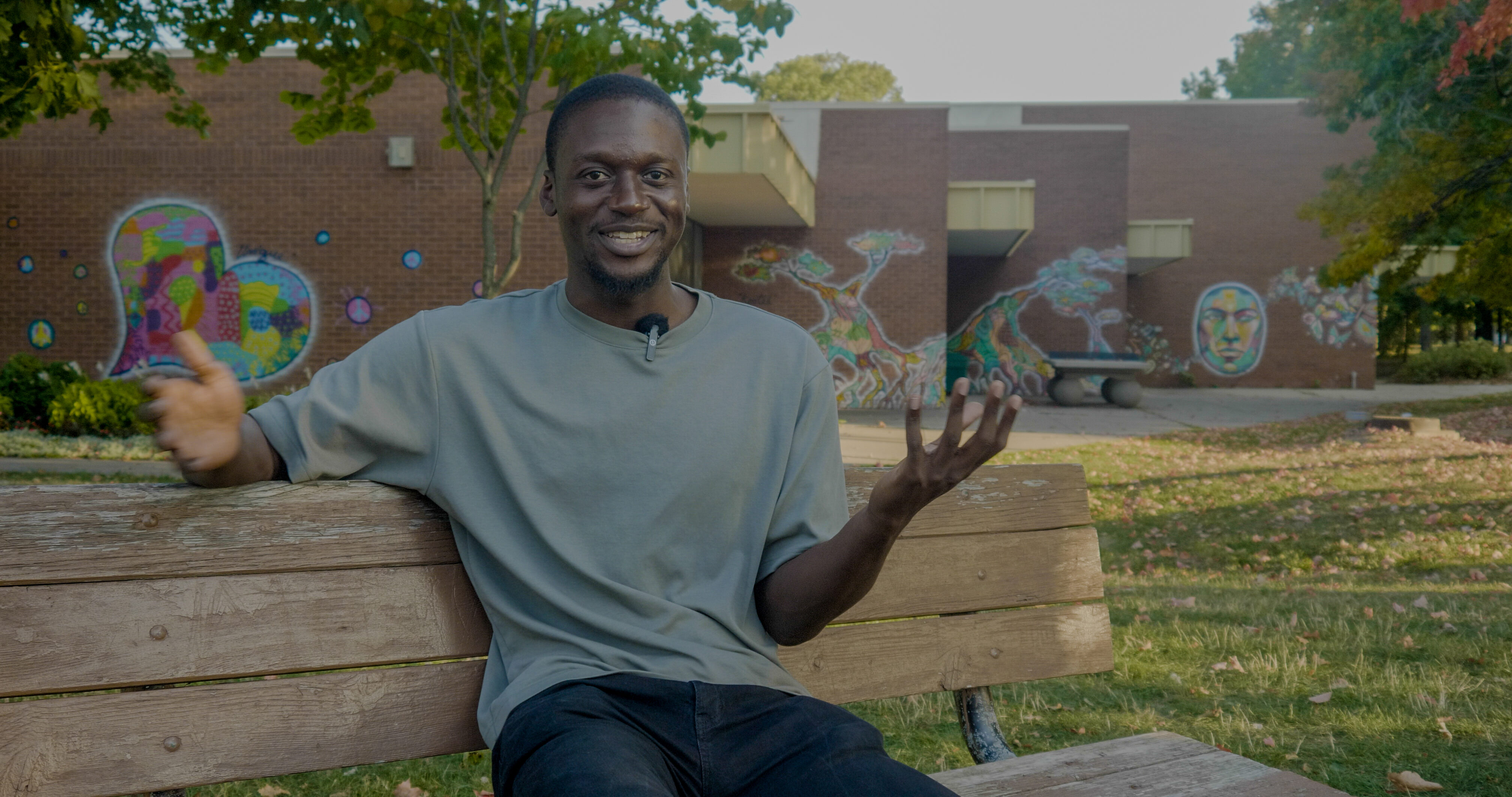THE GREEN LINE
ORIGINAL STORY
PARKDALE SAYS NO TO E-WASTE BY REUSING OLD TECH
The Green Line team visited Free Geek Toronto in Parkdale to learn how the non-profit social enterprise is fixing unused tech and giving it a second life so that people in need can benefit from it.
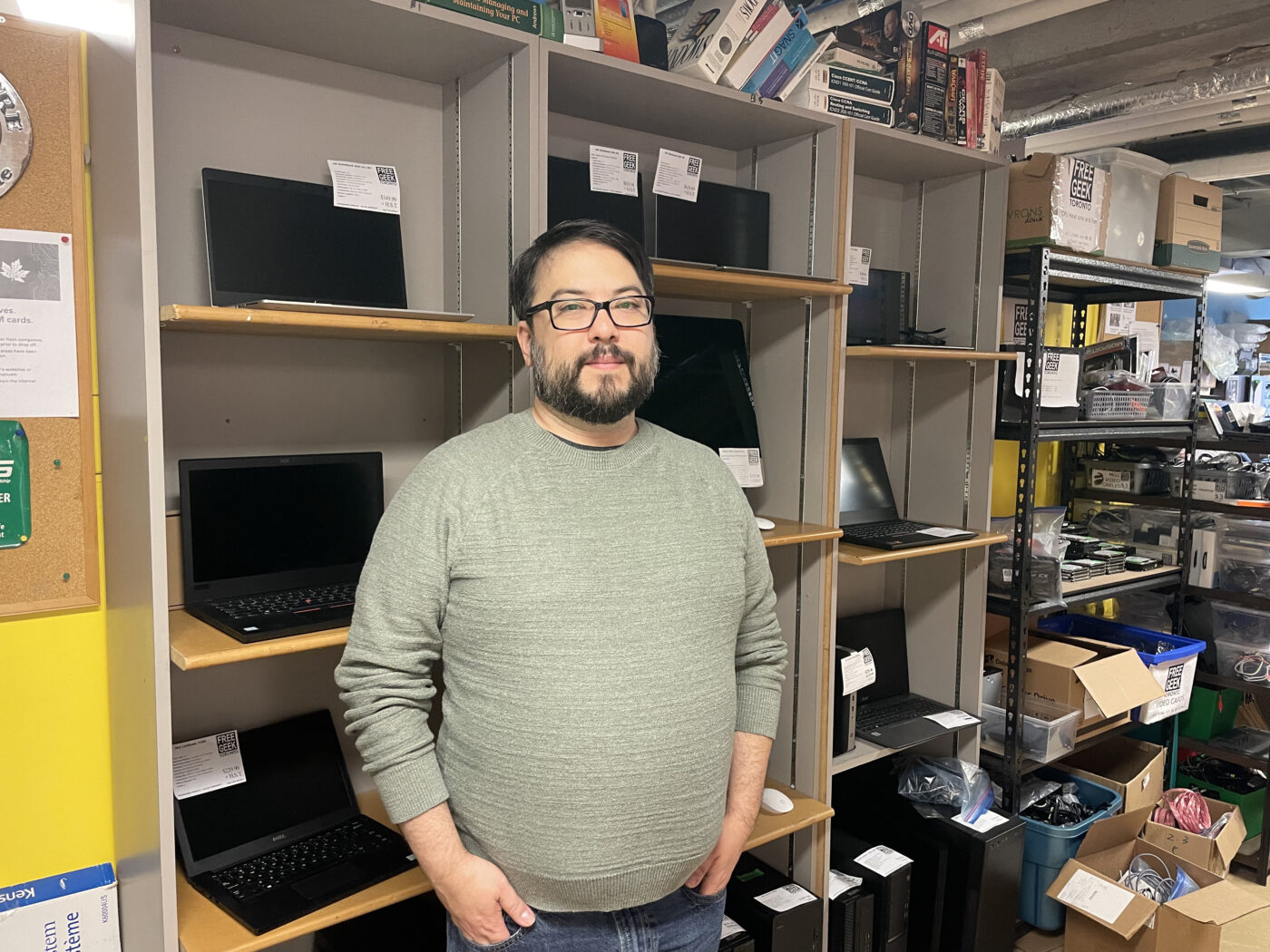
Ryan Fukunaga, executive director of Free Geek Toronto, stands by a shelf of refurbished computers at the Free Geek Toronto storefront at the intersection of Sudbury and Abell streets.


Amanda Seraphina James Rajakumar
Indian immigrant with a post-grad in journalism from Centennial College. Now living in Grange Park, meeting new people, and hearing different stories. Has four names, so it’s a pick-your-player situation.
Jan. 24, 2024
Phones, laptops and earphones are some devices we use daily. But if they crash, what do you do? Throw it in the trash?
Last year, the City of Toronto collected and processed 684 tonnes of electronic waste. So, instead of producing more e-waste, one store in Parkdale is helping Torontonians save their old tech from ending up in landfills.
From the Parkdale Land Trust to the Parkdale People’s Economy, this west-end downtown neighbourhood built its diverse community from the bottom up.
At the intersection of Sudbury and Abell streets, an initiative called Free Geek Toronto is mobilizing locals to help each other out — this time, by reusing technology. The non-profit social enterprise says it turns “old devices into new opportunities.”
Ryan Fukunaga, executive director of Free Geek Toronto, says people discard devices before they reach their end of life. So, the organization aims to combat this problem by reusing technology that people don't want anymore. He gave the example of developers letting go of old devices because they need the newest and best computers.
“But what's [not] newest and best to somebody in [their] day-to-day life, that computer could still be of great use,” he explains.
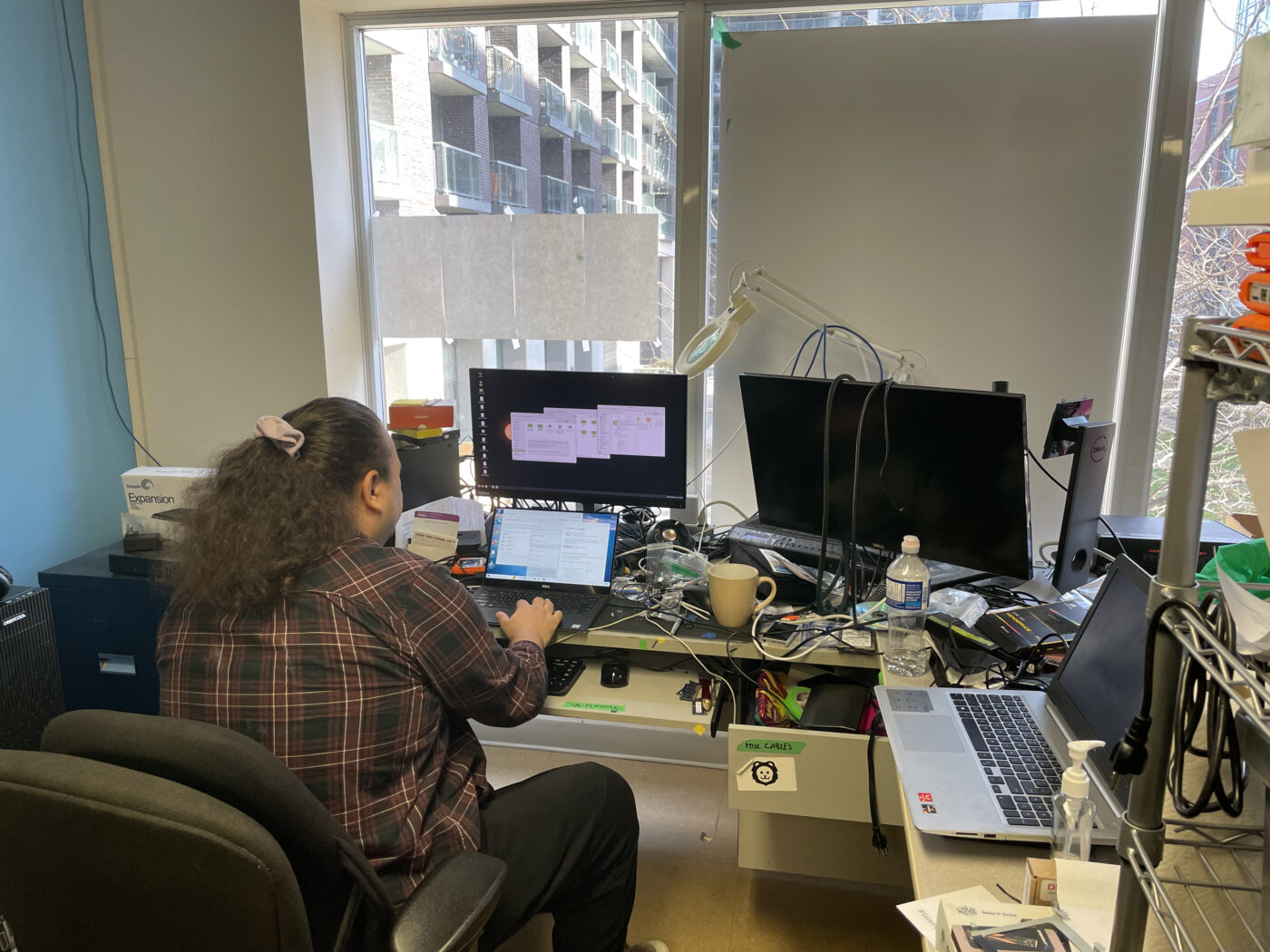
Emma Fawkes, reuse manager at Free Geek Toronto, sits down to fix a computer at their desk inside the store.

Fukunaga says actions like mending clothes, reducing food waste and reusing tech work towards building a circular economy, which is when we keep things in the economy for as long as possible before getting rid of them. When it comes to tech, his goal is to figure out how to extend the life of every device.
Free Geek has a walk-in store that takes donations of old tech, refurbishes them and then sells them at affordable prices to local people and organizations in need, such as Parkdale Project Read.
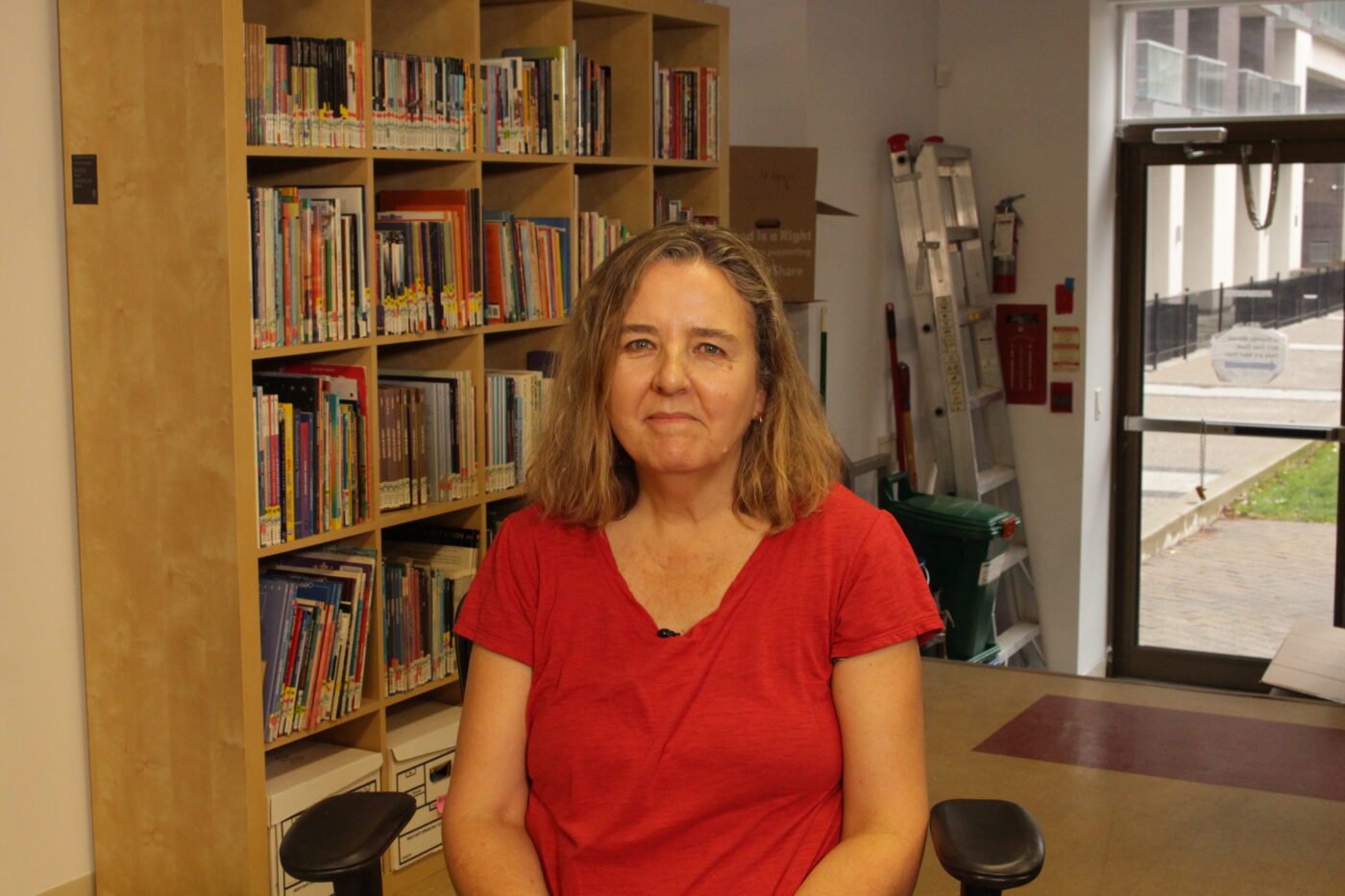
Mary Brehaut, a staff member at Parkdale Project Read, sits inside the organization at the intersection of Sudbury and Abell streets.

“Parkdale is a really good example of the digital divide where people get left behind if they're not accessing services. There are a lot of marginalized communities within Parkdale, so they really need an accessible service,” says Mary Brehaut, a staff member at Parkdale Project Read. “That's why Free Geek has been so good for folks.”
Brehaut adds that during the pandemic, Parkdale Project Read had to help get its program participants online quickly; but many of them didn’t have access to the internet or digital devices, which is why the organization partnered with Free Geek Toronto to get affordable laptops with accessible features. Currently, Parkdale Project Read is on its 12th batch of computers purchased from Free Greek Toronto, which amounts to 100 computers to date.
Fukunaga also helped co-facilitate a three-month computer basics course at Parkdale Project Read, providing tech support and coaching participants on how to use their computer’s features.
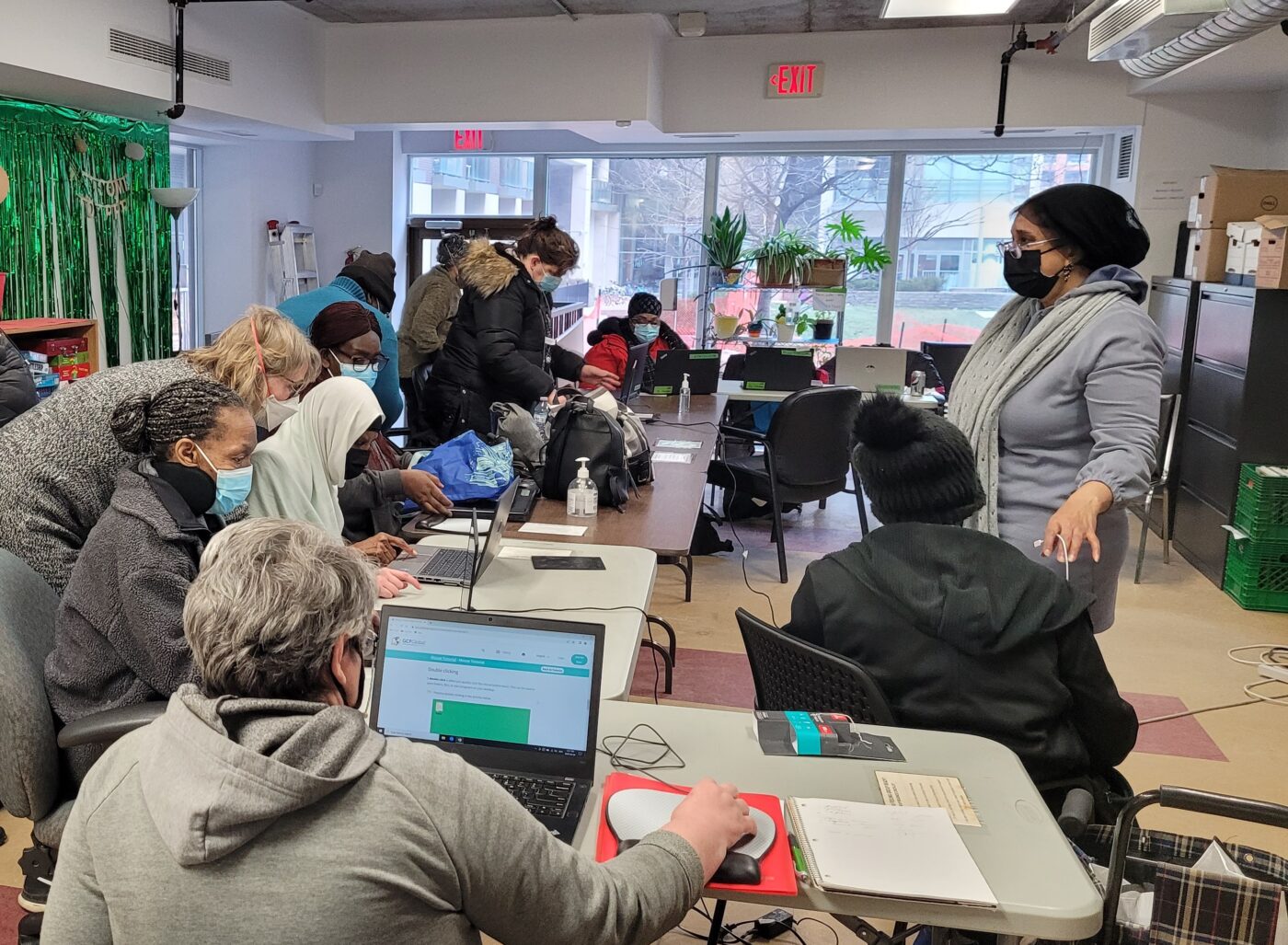
Parkdale Project Read ran a computer basics course in 2023 using refurbished computers from Free Geek Toronto.

Located right across Free Geek Toronto is Creative Reuse Toronto, a resource centre for learning about all things sustainability.
The two organizations collaborate by directing people with tech needs to Free Geek Toronto and people with sustainability questions to Creative Reuse Toronto.
Alicia Grimes, a board member for Creative Reuse Toronto, says not all plastic polymers can be recycled, and as a result, are accumulating in our waste stream.
A report by Environment and Climate Change Canada found that Canadians throw away over three million tonnes of plastic waste every year, of which only nine per cent gets recycled.
“To repair, to reuse, to resuscitate; I think it's going to be a more sustainable option just because it's more hands-on and it keeps us aware of what we're consuming,” she says. “It helps us audit our own behavior.”
Grimes explains that e-waste is becoming a bigger problem since landfills are running out of real estate to hold it. What’s more, it produces microplastics and chemical off-gassing, which gets into our waterways and soil; this then affects the food we eat and ultimately our health.
“These impacts are measured in the parts per million and we're finding it within our environment and within us. And so that's why we should reduce our e-waste consumption,” she adds.
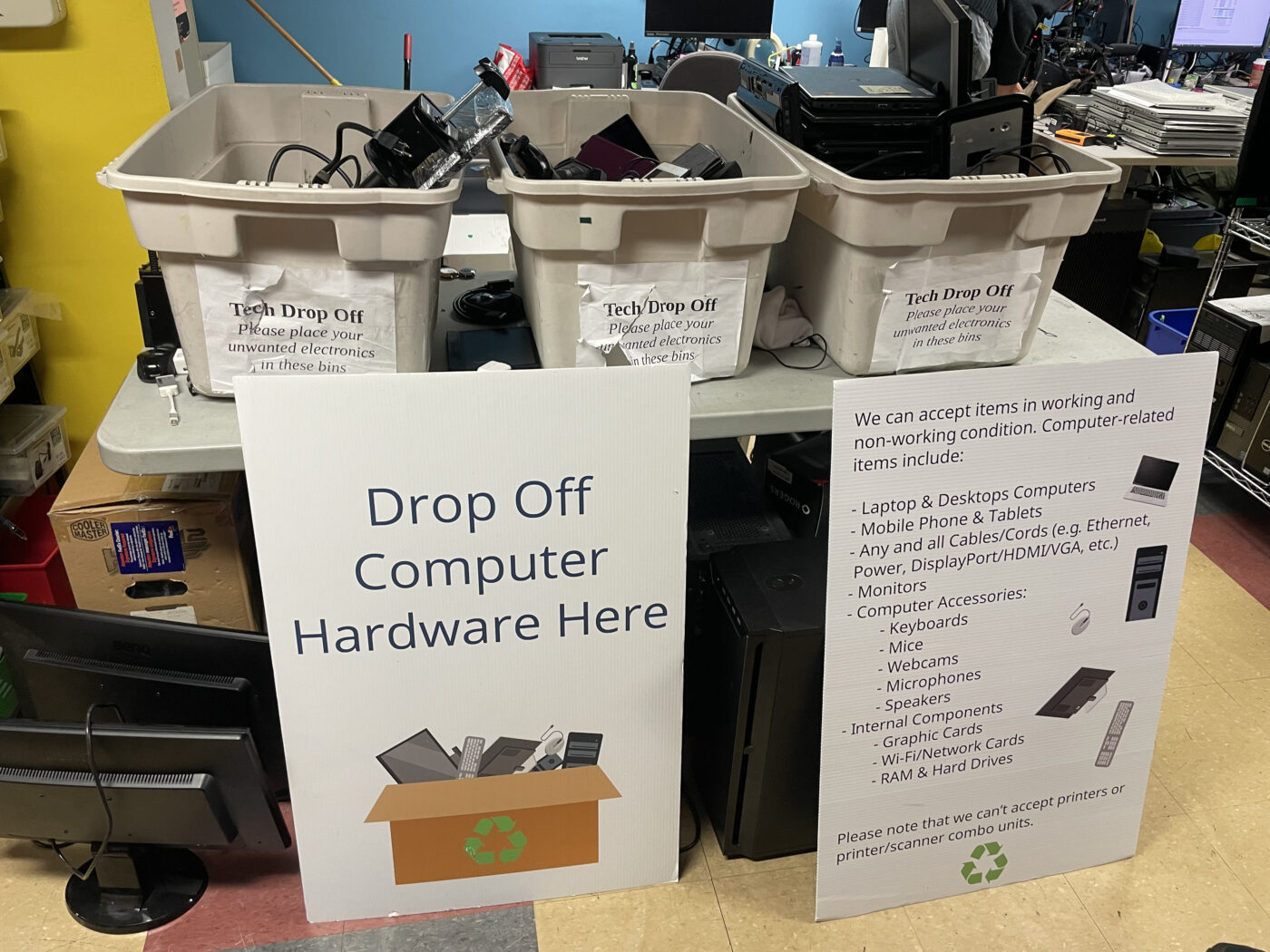
Free Geek Toronto’s computer hardware drop-off spot inside the storefront at the intersection of Sudbury and Abell streets.

Last October, the Senate of Canada passed the Right to Repair bill, which allows people to repair tech themselves or anywhere they’d like instead of having to visit manufacturer-authorized locations. Bill C-244 makes repairs more accessible and promotes a habit of reusing tech. Fukunaga says the bill will make getting parts, tools and manuals much easier.
Fact-Check Yourself
Sources and
further reading
Don't take our word for it —
check our sources for yourself.
Here's your chance to support the only independent, hyperlocal news outlet dedicated to serving gen Zs, millennials and other underserved communities in Toronto. Donate now to support The Green Line.
